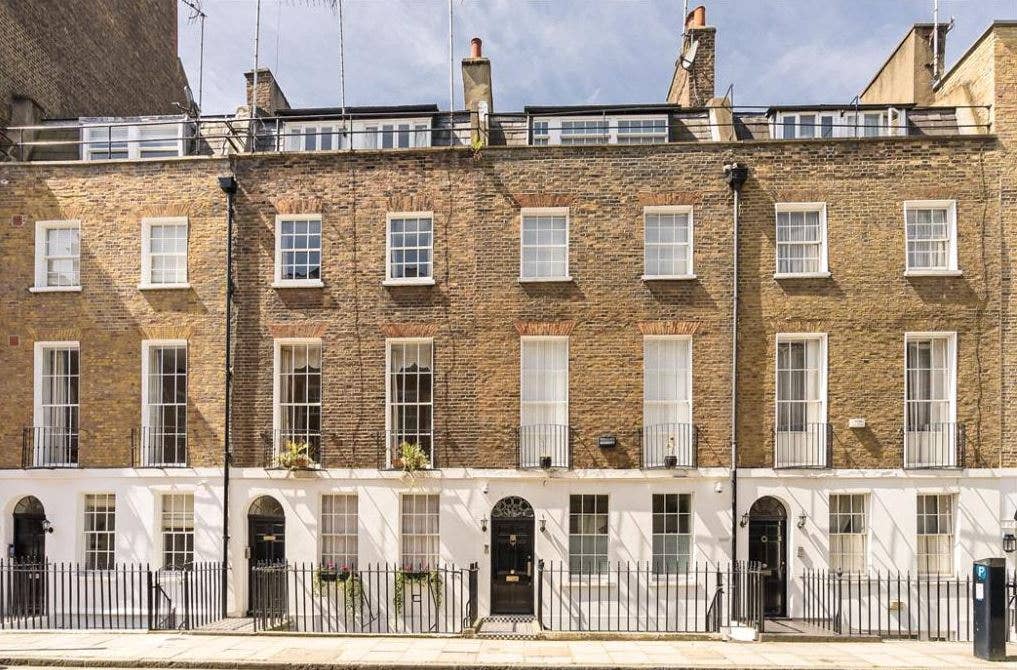- Record values push ownership further beyond reach for millions
- Generational divide fuels call for action including wealth tax
Surging house prices in the U.K. are making it more difficult for younger generations to follow the most common path for accumulating wealth, widening a gap between the rich and the poor.
Homeowners are benefiting from the coronavirus crisis, with cheap borrowing and government tax cuts driving real estate prices to an all-time high last year. The cost of a home averaged 253,374 pounds ($340,000) in December, up 6% from a year ago, according to mortgage lender Halifax.
That gravity-defying increase during the worst economic slump in three centuries has put ownership further out of reach for the young, particularly in London where the value of property has almost doubled in the last decade. It’s piling misery on a section of the population already hard hit by the pandemic, with young people more dependent on sectors closed by lockdown.
Priced Out
The share of young people owning their homes has collapsed in 20 yearshttps://www.bloomberg.com/toaster/v2/charts/6ed7c8570730499da482f6de229b91c7.html?brand=business&webTheme=default&web=true&hideTitles=true
Source: Institute for Fiscal Studies
“It’s about the imbalance of economic power,” said Robert Joyce, deputy director of the Institute for Fiscal Studies and a participant in a review of inequalities led by Nobel Laureate Angus Deaton. “More and more houses are owned by the same people, a narrow segment of society who are renting them out to younger people.”
There are implications for the productivity of the economy too. High housing costs can make it hard for workers to relocate, depriving companies of talent and robbing young people of opportunities for better jobs and pay.
The widening gulf between “generation rent” and those just a decade or two older has spawned a range of housing initiatives since the financial crisis. More recently, it has fueled a debate over whether Chancellor of the Exchequer Rishi Sunak should follow countries such as Argentina by levying a wealth tax to help repair Britain’s coronavirus-ravaged public finances.
Wealth Taxes Are Going Global, From California to Germany
Cooling Off
Analysts expect the housing market to slow rather than slump this yearhttps://www.bloomberg.com/toaster/v2/charts/514164368813466fb707c1e9d7dfd689.html?brand=business&webTheme=default&web=true&hideTitles=true
Note: Halifax sees house prices falling between 2% and 5% in 2021
A vocal advocate of higher taxes on the rich is Gary Stevenson, an inequality economist and former Citibank trader who accurately predicted rock-bottom interest rates remaining for long after the financial crisis. He sees a similar scenario unfolding now and warns that London house prices could double again.
“It makes social mobility completely impossible and housing completely inaccessible for the bottom 50 or 60 percent of society,” Stevenson said. “It’s like cutting off the bottom half and saying, you guys lost capitalism, you’re out.”
Affordability is particularly stretched in the U.K. capital, where first-time buyers paid 420,618 pounds on average at the end of 2020, the equivalent of more than nine times their earnings, according to Nationwide Building Society. It means buying often requires outsize deposits, or having money from family.
Out of Reach
First-time buyers are now paying almost $600,000 to live in Londonhttps://www.bloomberg.com/toaster/v2/charts/d27facf23a59425d8c3a4255933f6f21.html?brand=business&webTheme=default&web=true&hideTitles=true
Source: Nationwide Building Society
While overall wealth inequality in the U.K. is far less pronounced than in the U.S., the gap has widened in the last decade. That reflects both Bank of England stimulus to fight the financial crisis, which fueled a surge in asset prices, and fiscal austerity that hit those of working age harder than older people.
In 1996, more than half of 25-34-year-olds owned their homes, according to the IFS. By 2017, that figure had fallen to little more than a third.
The pandemic has made the challenge facing the young harder still, with a record-low BOE benchmark rate and a temporary tax cut on homebuying feeding demand. Lenders meanwhile are withdrawing low deposit mortgages or increasing interest rates on them amid growing worries about risk.
Risk Premium
The pandemic has made banks less willing to lend against small depositshttps://www.bloomberg.com/toaster/v2/charts/1dc1d6faae9740f1aaf4553cc2fc6d6a.html?brand=business&webTheme=default&web=true&hideTitles=true
Source: Bank of England
Note: Sterling 2-year fixed rate mortgage
For years, build, build, build has been the mantra of campaigners, who say that new homes are the key to fix the housing crisis. But despite a homebuilding recovery in the past decade, Britain is still constructing half of the homes that it did at its peak in the late 1960s.
In the year to March last year, the number of dwellings — new builds, conversions and re-purposed property — rose by under 250,000, leaving the government a way to go to meet its target of 300,000 a year by the middle of the decade. Some say close to 350,000 are needed.
Build, Build, Build
The government is easing planning rules to boost the number of homeshttps://www.bloomberg.com/toaster/v2/charts/9c2b9611711949d0ba13c8cb05fbaaa0.html?brand=business&webTheme=default&web=true&hideTitles=true
Source: Ministry of Housing, Communities and Local Government
A key plank of the strategy is the provision of affordable homes. These rose just 1% and were almost 90,000 short of the 145,000 that the National Housing Federation, which represents housing associations, says is needed each year for the next decade. Its head of policy, Will Jeffwitz, says that target won’t be met anytime soon.
“It will mean that millions of people will be living in homes or continue to live in homes that are either unaffordable, insecure or of poor quality with knock-on effects on health, wellbeing and children’s ability to learn,” he said.




